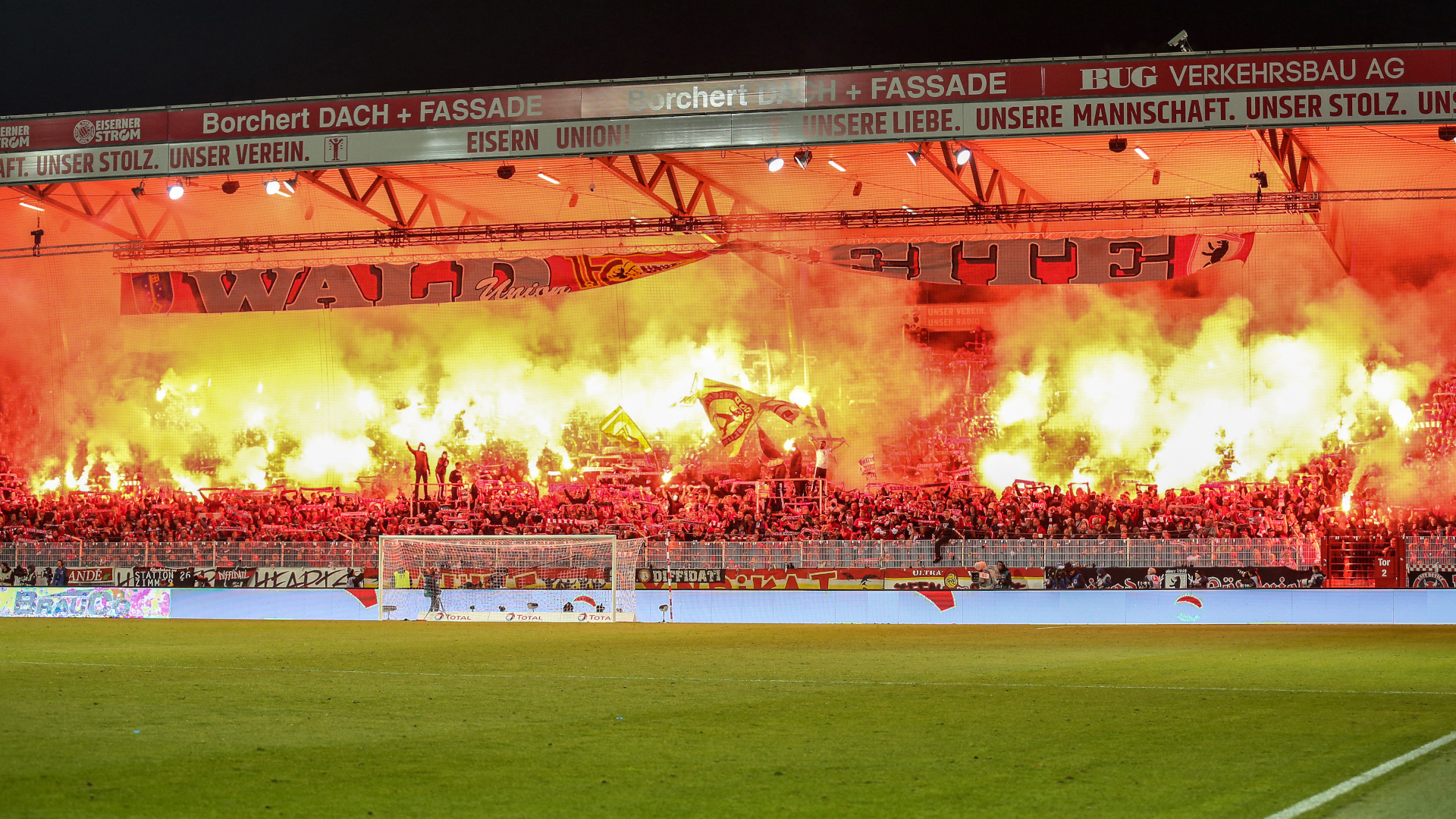Ahead of each new season, football fans await the day when the fixtures are published. It’s their first chance to see when they will face their rivals and what would be their first match of the new campaign. For supporters of Hertha BSC and Union, the Berlin rivals, those two days are the same – they go head to head on the first weekend!Hertha is the best-known club from Berlin – they spent by far the most seasons in the Bundesliga. Out of 60 seasons of the German top-flight in the current format, Hertha were there in 40 of them. During those years, a few other clubs from Berlin got promoted to the Bundesliga, only to disappear quickly. The first capital derby took place on 16 November 1974 when Hertha beat Tennis Borussia 3-0 in the Olympiastadion, before meeting with them thrice in the next couple of years.While these were Berlin derbies and fierce local rivalries, they were also West Berlin derbies. That is the crucial difference between the matches involving Union, as The Irons are the first team ever from what was East Berlin to make it to the Bundesliga.Aside from Berlin’s two major teams, Hertha BSC and FC Union, there are nearly 50 clubs in the city. Most of these boast no notable triumphs, but their representation of certain ethnicities and ideologies are much more valuable. Here are a few of those clubs and their stories. pic.twitter.com/MFqcn4rA3Y— The Total Football Hub (@TheHomeOfFutbol) July 28, 2022 To truly appreciate the magnitude of this derby, you need to understand the modern history of Berlin as a city. Following the end of World War II, Germany and its capital were divided among the Allied powers. The occupation zones under the control of the United States, United Kingdom and France would form West Germany, while the area under the control of the Soviet Union became East Germany. As the capital, Berlin itself was similarly divided. The Berlin area lay entirely within East German territory, and in 1948 the Soviets imposed a blockade on the west of the city, and it was cut off by land. Only the Berlin Airlift by the western powers kept their part of Berlin supplied with food and all other essential items.As the Cold War escalated, the East German government began the construction of the Berlin Wall to encircle West Berlin in 1961. While Westerners were permitted to pass into East German territory via strictly controlled checkpoints, Easterners were banned from entering the West without prior consent. Berlin as a city was divided. What began as a political division would manifest into a social and economic one as life in the two Berlins began to diverge.##NAJAVA_MECA_6548717##On the sporting front, East Berlin teams competed in the East German league system – totally separated from teams in the West. Union Berlin was founded in 1966 and enjoyed their greatest success two years later when they won the East German Cup. During the Cold War, before the Berlin Wall was brought down in 1989 and Germany united again, Hertha and Union fans were friends. Union fans would travel to Hertha’s matches played in the Eastern parts of Europe, and the Hertha fans would sometimes go to the Stadion An der Alten Forsterei to watch Union’s games.On 27 January 1990 came the first match between Hertha and Union in 28 years. An official attendance of 51,270 was recorded at the Olympiastadion, although the actual total is believed to be higher. It turned into a celebration of Berlin. That was partly because the job of bringing the east and west of the city onto a level social and economic playing field had begun. There were also large sporting differences between Hertha and Union. While the former gained promotion back to the Bundesliga that season, Die Eisernen missed out on promotion to the top division in East Germany.In a league of their own! Bayern have no chill, Eintracht got to see the champions from up closeWhen the two league systems were combined following formal reunification, Union found themselves in the third tier and pushing for promotion. However, the club’s finances remained a serious concern. Union Berlin president Dirk Zingler says he doesn’t like the media portraying the Berlin derby as a friendly match. His club has a working-class background and the rivalry reflects it.”For me it’s a derby, it stands for rivalry, demarcation and footballing class warfare. I think it’s absurd to give this match a friendly character under the mantra of playing for German unity.”It’s the day of the Berlin Derby. So some, it’s a symbol of unity and friendship. To some, it represents class struggle. To everyone, it’s the hottest football match of the weekend.BUNDESLIGA – matchday 1FridayEintracht Frankfurt – Bayern 1-6 (0-5)/Kolo Muani 64 – Kimmich 5, Pavard 11, Mane 29, Musiala 35, 83, Gnabry 43/Saturday16.30: (3.40) Augsburg (3.35) Freiburg (2.30)16.30: (1.90) Wolfsburg (3.60) Werder (4.40)16.30: (2.30) M’ gladbach (3.60) Hoffenheim (3.20)16.30: (1.90) Union Berlin (3.60) Hertha (4.50)16.30: (3.25) Bochum (3.20) Mainz (2.45)19.30: (2.25) Dortmund (3.60) Leverkusen (3.30)Sunday16.30: (4.60) Stuttgart (3.70) RB Leipzig (1.85)18.30: (1.85) Koln (3.70) Schalke (4.60)***odds are subject to change

